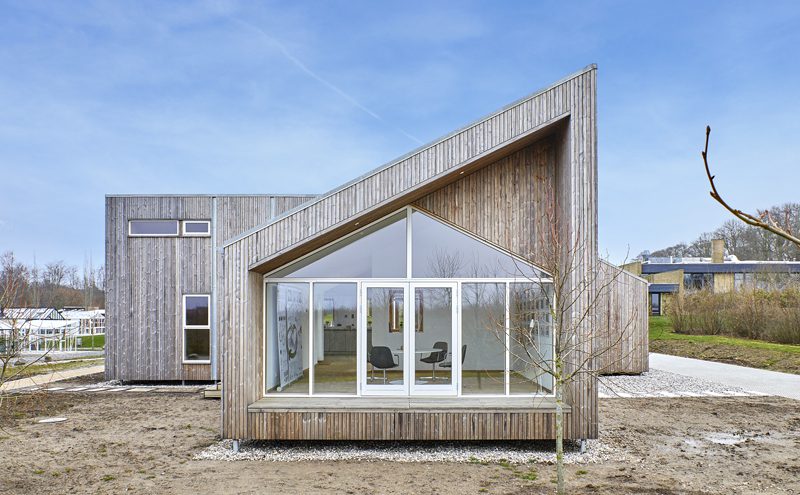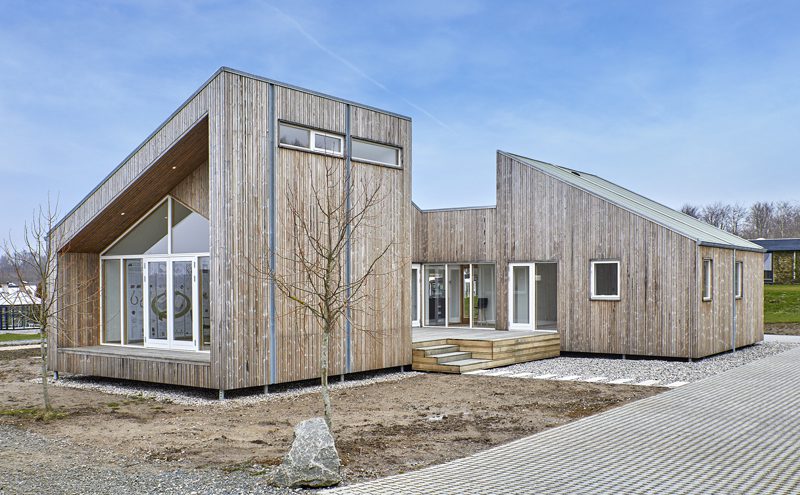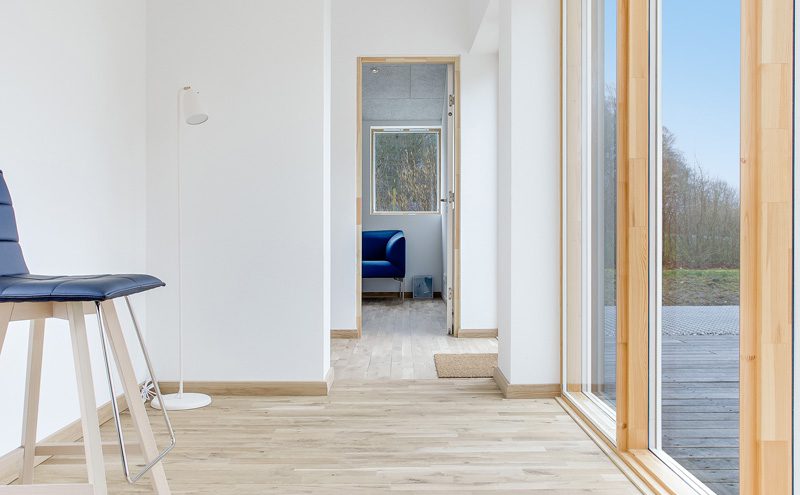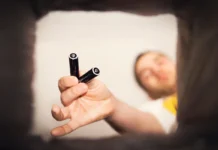
Copenhagen based architecture firm Een til Een has unveiled what it describes as the world’s first “biological house”.
The construction is claimed to set a new high standard for eco-friendly buildings. Located in Middelfart (snigger alert), Denmark, and made from upcycled materials including Kebony character cladding, “a beautiful wood recommended by leading architects”, the Biological House is described as a modern, sustainable and modular housing concept with a specific focus on architecture, materials, indoor air quality and unique design.
Bio-waste reconfigured
A biological house, says the firm, possibly using the term in hopeful anticipation it will become generic, is typically built with upcycled agricultural industry residual products – materials like grass, straw and seaweed. These would normally be considered waste and burned for energy. They will instead be processed into valuable natural building materials, forming the bulk of the raw materials needed for the project and thereby avoiding the environmental impact that burning them would cause.
Design and construction was a rigorous process, says the firm, with innovative techniques being tested and developed along the way. Instead of a traditional concrete foundation, which is carbon intensive and doesn’t allow the same level of recyclability, the building sits upon screw piles, typically used for building deep foundations with minimal noise and vibration. The development is fully supported by the Danish Ministry of the Environment Fund for Ecological Construction, with all materials used in the build thoroughly tested and approved and available commercially.

When softwood turns hard
Sustainability was seemingly of paramount importance to the architects during all stages of design and construction, so they selected Kebony for the cladding due to its environmental credentials, as well as “the beautiful silver-grey patina it forms over time”. Developed in Norway, the patented Kebony technology is an environmentally friendly process, which modifies sustainably sourced softwoods by heating the wood with a bio-based liquid. By polymerising the wood’s cell wall, softwoods permanently take on the attributes of tropical hardwood including high durability, hardness and dimensional stability.
This project sets a precedent for sustainable construction, says Een til Een, as the property can be easily adapted for each customer, using the latest digital production technology to ensure the build is both quick and accurate. Once constructed, the house can easily be removed at any point without leaving a trace and without causing any damage to the surrounding area; it can then be rebuilt in the same or different context elsewhere.
From conception to completion, more than 40 major partners have been involved in the construction of the Biological House including Novofibre, Horn Group, Thermocell, Derbigum, Rheinzink and Kebony. The Biological House is the first construction to open as part of the BIOTOPE – a unique new exhibition park and knowledge centre for sustainable construction and Denmark’s largest permanent construction exhibition.

Kim Christofte CEO of Een til Een commented: “It’s been a long project, and we have all certainly learnt a great deal over the course of planning and construction. It has been a pleasure to watch the team find so many clever solutions to the problems encountered along the way and we are delighted to finally open the doors to share this unique house with the public.”







